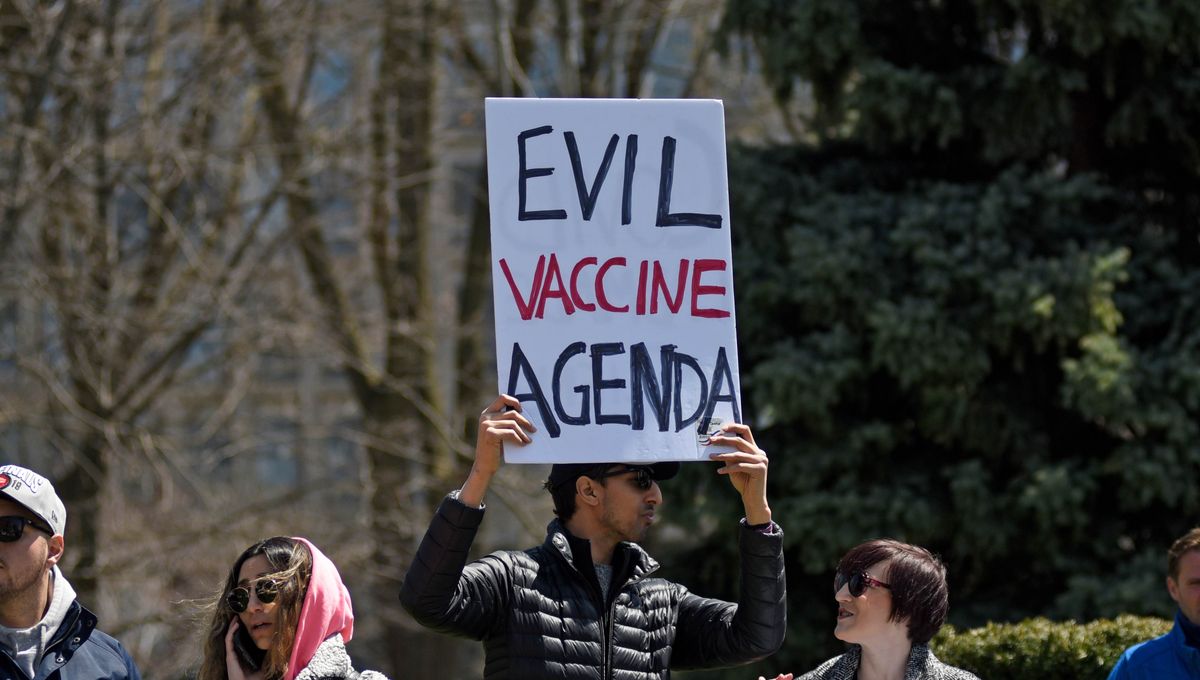
It appears conservative Americans have a deeper distrust in science than previously believed. Not only do they distrust scientific ideas that do not correspond to their worldview, but they also distrust fields that contribute to economic growth and productivity when compared to liberals. Unfortunately, short-term interventions aimed at improving trust seem to have little impact.
Science is a valuable tool that can solve major problems in the world, both mundane and profound, such as pandemics and climate change. But trust in this tool is extremely fragile and there are concerns that, since the COVID-19 pandemic, public trust in science and scientists has been in crisis.
The rise of misinformation and conspiracy theories, alongside attacks from certain high-profile political figures, has led to the perception that confidence in science is lower than before. But various studies have shown that this trust issue is not supported by the evidence.
However, there is one social group that does seem to be consistently distrustful towards science and is more likely to reject the solutions it offers: conservatives.
“In America, but also in other countries, conservatives generally have lower trust in science,” Dr Bastiaan Rutjens, Associate Professor in the Faculty of Social and Behavioural Sciences at the University of Amsterdam, explained in a statement. “Since the 1980s, trust of science among conservatives in America has even been plummeting.”
Part of the reason for this is because scientific findings do not necessarily align with conservative political or economic beliefs, while some are going so far as to dismiss science as a “leftist hobby”, and “universities as strongholds of the leftist establishment,” Rutjens added.
Rutjens and colleagues wanted to better understand how trust varies across scientific fields and whether short interventions could improve declining trust. The team asked 7,800 Americans about their views on 35 different scientific professions, ranging from anthropologists to biologists and atomic physicists. They also examined the differences between those who identified as conservative and those as liberal.
They then tested five interventions aimed at increasing confidence in scientists, specifically among conservatives. They attempted to address the reasons why people may distrust science. This included its perceived misalignment with moral values or the idea that scientists are not part of their in-group. The interventions were designed to show that scientific results can be in-keeping with conservative values and to showcase the work of conservative scientists.
Broad distrust
The results showed that liberals had more trust than conservatives across all 35 scientific professions that were examined. The result was the same regardless of whether the fields aligned with their political priorities, such as inclusion or climate change. They were even higher than conservatives when it came to fields associated with industry. However, the level of trust shown by liberals was not uniform. It did vary depending on the scientific field.
The gap in trust was particularly apparent for subjects such as climate science, medical research, and social sciences.
“This is likely because findings in these fields often conflict with conservative beliefs, such as a free-market economy or conservative social policies,” Rutjens explained.
As possibly anticipated, the gap was smaller for technical and applied disciplines, such as industrial chemistry.
“These fields are more focused on economic growth and productivity,” Rutjens said. “But it remains striking that even here, conservatives show lower trust. Their distrust extends across science as a whole.”
When it came to the interventions to improve trust, the results were even more stark. None of the five interventions succeeded in increasing conservative’s confidence in science. Even when the message was aligned with their values, their attitude barely shifted.
“This suggests that their distrust is deeply-rooted and not easily changed,” Rutjens explained.
Given these findings, it is hard to tell how this scientific distrust will evolve in the future.
“Extreme things are happening in America right now. But even here in the Netherlands we are seeing unprecedented discussions being held around science, sometimes accompanied by significant distrust,” Rutjens added.
Moreover, it seems it is very difficult to strengthen trust in science using quick interventions.
“This does not mean it is impossible, but these short interventions do not work to make science more transparent and reliable for certain groups,” Rutjens concluded.
“We need stronger interventions that make science truly personal. What can science contribute to your life, here and now?”
The study is published in Nature Human Behaviour.
Source Link: US Conservatives Distrust All Scientific Fields Compared To Liberals